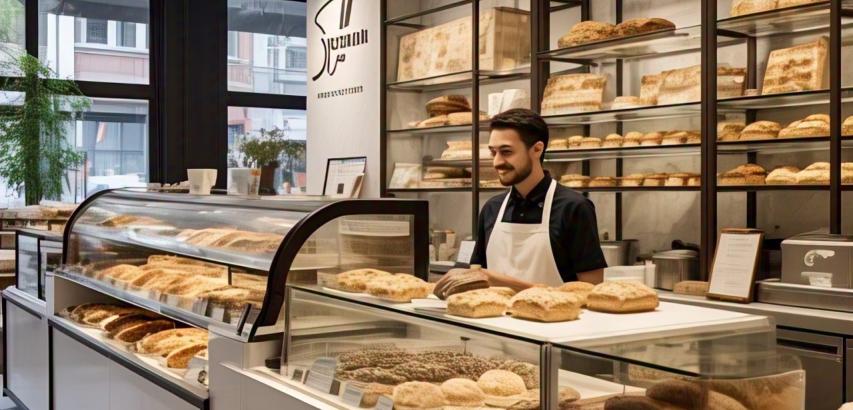A Smart Bakery Project integrates automation, IoT, artificial intelligence (AI), and data analytics to enhance the efficiency, quality, and sustainability of bakery operations. By modernizing traditional baking processes, this initiative aims to reduce waste, optimize production, and deliver personalized customer experiences. From ingredient management to AI-driven recipes and contactless sales, smart bakeries are reshaping the future of the food industry.
Key Components
Automated Baking Systems:
Robotic arms and smart ovens automate mixing, shaping, and baking processes.
 |  |  |
 |  |  |
IoT sensors monitor oven temperature, humidity, and baking time to ensure consistency.
 |  |  |
AI-Driven Demand Forecasting:
Machine learning algorithms analyze sales data, weather, and trends to predict daily demand for bread, pastries, etc.
Reduces overproduction and food waste.
Smart Inventory Management:
IoT-enabled storage tracks ingredient quantities and expiration dates.
Automated reordering systems restock flour, yeast, and other supplies.
Personalized Customer Experience:
Mobile apps let customers pre-order customized cakes or gluten-free options.
Loyalty programs use purchase history to offer tailored discounts.
Energy-Efficient Operations:
Solar-powered ovens and smart grids minimize energy consumption.
 |  |  |
Waste heat from baking is recycled to power other systems.
Quality Control with Computer Vision:
Cameras and AI inspect baked goods for defects (e.g., uneven browning, shape inconsistencies).
 |  |  |
Ensures every product meets quality standards.
Contactless Retail Solutions:
Self-service kiosks and cashless payment systems (e.g., QR codes, NFC).
 |  |  |
Drone delivery for online orders in urban areas.
 |  |  |
Benefits
Consistent Quality: Automation eliminates human error in measurements and timing.
Reduced Waste: Precise demand forecasting and portion control minimize unsold items.
Faster Production: Robotics speed up repetitive tasks like dough shaping.
Enhanced Customer Engagement: Apps provide real-time updates on orders and promotions.
Sustainability: Energy-saving tech and waste recycling lower the bakery’s carbon footprint.
Challenges
High Initial Investment: Costs for robotics, IoT infrastructure, and AI software.
Workforce Adaptation: Staff need training to manage tech-driven workflows.
Data Security: Protecting customer data from app-based orders and loyalty programs.
Balancing Tradition and Innovation: Maintaining the "artisanal" feel while adopting automation.
Real-World Examples
Dominos’ Pizza Checker: Uses AI to assess pizza quality before delivery.
BreadBot by Wilkinson Baking Company: Fully automated bread-making machine for supermarkets.
Panera’s AI-Powered Drive-Thru: Predicts customer orders using historical data and weather.
Eatsa (Automated Cafés): Contactless pickup cubbies for pre-ordered meals, adaptable to bakeries.
Future Trends
3D-Printed Pastries: Custom-shaped desserts created via 3D food printers.
Hyper-Personalization: AI designs recipes based on dietary needs (e.g., keto, vegan).
Blockchain for Transparency: Track ingredient origins (e.g., organic flour, fair-trade cocoa).
Augmented Reality (AR) Menus: Customers visualize cakes in 3D before ordering via AR apps.
The Smart Bakery Project bridges the gap between culinary artistry and cutting-edge technology, offering faster, greener, and more customer-centric solutions. While challenges like costs and workforce training exist, the potential for reduced waste, energy savings, and innovative products makes it a recipe for success. As consumer expectations evolve, smart bakeries will become a cornerstone of the food industry, blending tradition with tomorrow’s tech.
